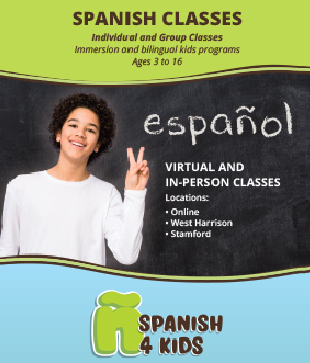It is widely known that learning a new language as a small child can trigger parts of the brain that work on focus, attention, creativity, problem-solving, and the ability to transition. While it is certainly not necessary to speak two languages when living in the United States, it can open up opportunities for employment and cultural understanding if you speak another language. By reading this magazine, you are already taking a step in the right direction! Here are some points that explain the benefits of being bilingual:
- Increased executive brain function *
- Enlargement of the left inferior parietal cortex in the brain
- Less distraction and more focus
- Better ability to switch from one task to another
- Social-emotional intelligence **
- Family and community engagement ***
- Increased levels of academic competence and motivation
- Perfect pronunciation
*Concentration, memorization, flexible thinking, self-control, and rational decision making.
**Theory of Mind is the ability to understand that people have different beliefs, motivations, knowledge, and moods and how that affects their actions and behavior. Perspective taking is the ability to relate to others.
*** Improvement of the students’ sense of belonging and increased of parent involvement.
Beneficios de ser un joven bilingüe explicado
Es bien sabido que aprender un nuevo idioma cuando eres niño puede activar partes del cerebro que trabajan en el enfoque, la atención, la creatividad, la resolución de problemas y la capacidad de transición. Si bien no es necesario hablar dos idiomas cuando se vive en los Estados Unidos, el hacerlo puede brindar oportunidades de empleo y comprensión cultural. ¡Al leer esta revista, ya está dando un paso en la dirección correcta!
Aquí hay algunos puntos que explican los beneficios de ser bilingüe:
- Mayor función cerebral ejecutiva *
- Agrandamiento de la corteza parietal inferior izquierda en el cerebro
Menos distracciones y más concentración - Mejor capacidad para cambiar de una tarea a otra
- Inteligencia socioemocional **
- Participación de la familia y la comunidad ***
- Aumento de los niveles de competencia académica y motivación.
- Pronunciación perfecta
* Concentración, memorización, pensamiento flexible, autocontrol y toma de decisiones racional.
** La teoría de la mente es la capacidad de comprender que las personas tienen diferentes creencias, motivaciones, conocimientos y estados de ánimo y cómo eso afecta sus acciones y comportamiento. La toma de perspectiva es la capacidad de relacionarse con los demás.
*** Mejora del sentido de pertenencia de los estudiantes y aumento de la participación de los padres.





